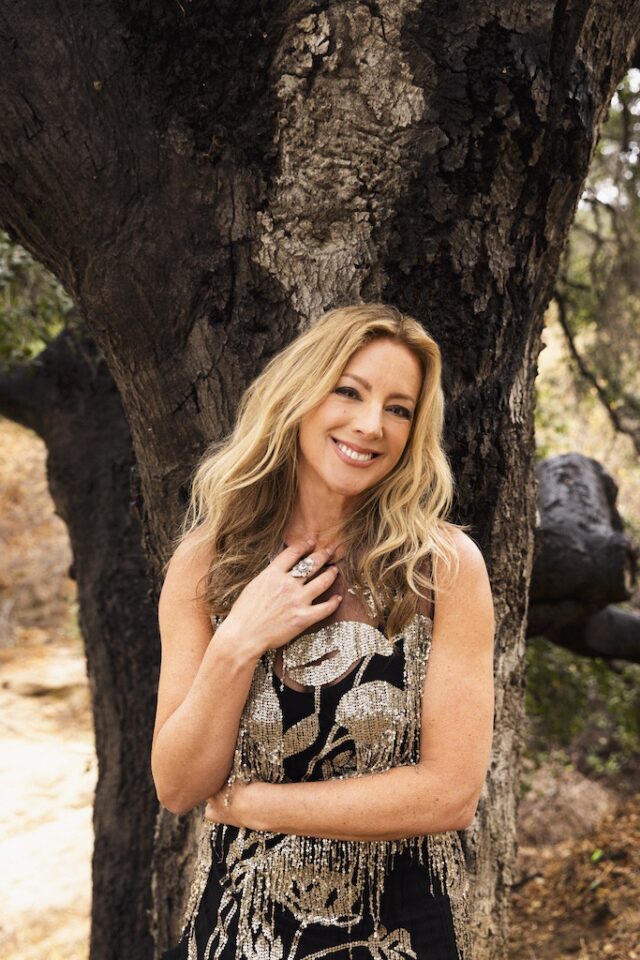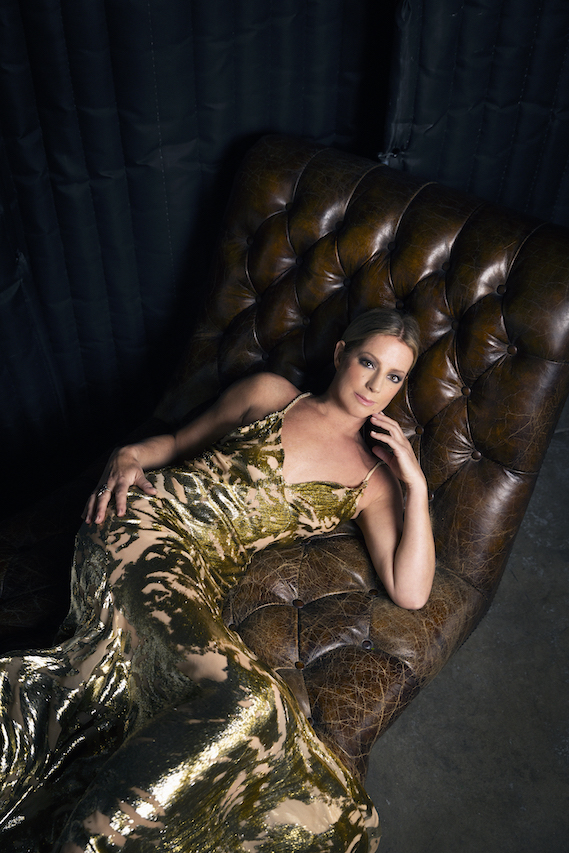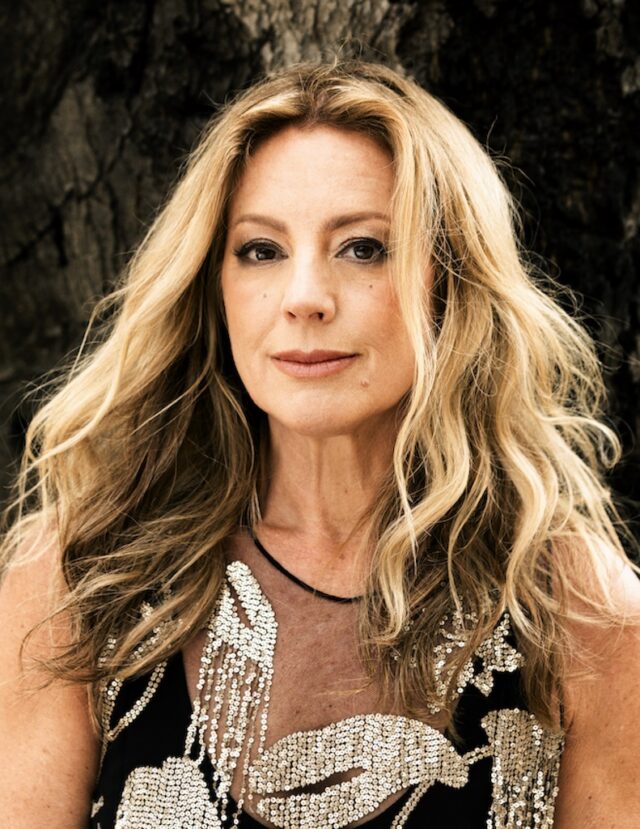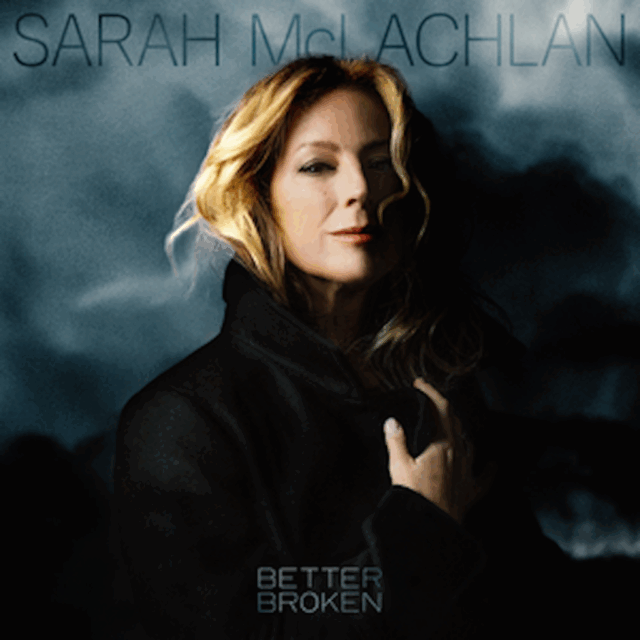
Purist: Congratulations on your new album, Better Broken. I love your lyrics, the song about your daughter, the tributes to the planet and to your mother. Where was your head and your heart when writing it?
Sarah McLachlan: All over the place. These songs span 14 years. “Better Broken” was one of those songs that got put aside and then forgotten about. Then, as I was going back through a lot of old demos, I found it and thought it was actually really good. I played it for my producer at the very end of a session and he said, Why didn’t you start with this one? I went through a divorce about 15 years ago, which shifted the trajectory of my life. Then I had a disastrous relationship after that, which lasted way too long, which is ample fodder for writing.
Yet I’m really a happy, optimistic person by nature, so I think one of the reasons it took 11 years between records is that I was living my life. I’m really busy with two daughters. I was for a very long time the chief fundraiser for my free music schools, which I have three of in Vancouver, Edmonton and New Westminster here in Vancouver. We have over 1,200 kids a year, and it’s completely free. I was wearing a lot of hats for a bunch of years, and doing a lot of really fun things that were very fulfilling along the way, and also spending a ton of time in nature. It was a little bit of an emotional roller coaster, because there were a lot of real highs and lows. I got to write about all those things, and I guess coming into the last two years, I was also looking at the world and where we are at as humans, as women.
Coming out of COVID, I was so hopeful that it would bring the world together, and really, it just tore us further apart—social media tearing us apart. Politics tearing us apart. I went into this record thinking that the possibility of the world ending is becoming more and more apparent, which is a challenging thing to deal with as a real optimist. I was having some serious dilemmas of how we move forward as humans. A lot of that went into the record, especially with some of the newer tracks that are just more about dealing with what’s happening at the moment. I joke that it’s a bit of emotional whiplash, because the record goes all over the place. It’s indicative of our moods of late, of holy shit, what is happening? How do I create a counterpoint in my life that feels like some kind of balance amid the chaos that seems to be coming our way constantly?
There is a cohesion to the music. All the songs complement each other.
Thank you, I think so. It’s like looking at all the various stages of grief and loss. Then there’s resilience and acceptance and reclamation and joy.
You were a Gen X icon. How do you embrace this next phase of your career?
Very similar things are still important to me. Maintaining my integrity. Doing things that feel good—not just for me, but for the greater good. Making music that means something to me, that moves me. These are all luxurious things to be able to achieve. I’ve lived a ridiculous life. I never expected to have the success I did; understanding that is such a gift and has really helped me put things in perspective. I’m 57 years old; my last child is graduating high school this year and going off to university. What does the next chapter look like? I am still and always will be a parent, but the day-to-day stuff isn’t so necessary. It just takes up a ton of emotional and physical space.
Oh, they’ll be back.
They’ll be back for sure. I went to my daughter’s final dance recital a couple of nights ago, and she does this beautiful contemporary dance piece to a very sad piece of music. She comes on stage and says, “I love this song.” Then “Answer” starts—my song. At first I thought, oh my God, someone has fucked up and she’s going to be so mad. And then my partner looked at me and said, “You didn’t know about this, did you?”
She chose it.
Ugly crying. I was a mess.
That’s a really special moment.
I think that I’m really excited about this next chapter. I’m excited about a new record. I wasn’t sure I’d ever put out another record, and then it turns out I had a lot more to say. It just took me a while to get there.

Looking back at the start, in 1988 when you released Touch, what advice would you give your younger self, or to a young female musician today?
I would definitely say work hard, believe in yourself, surround yourself with people who believe in what you want to achieve. Try and stay steadfast to that, and do things that support it. Everybody’s journey is so different. I’m always reluctant to give advice about anything. Get yourself a good team, a good lawyer. The trick is finding people who have good intentions, which is really hard sometimes to know.
Does it get easier?
I think it gets easier as you get older, because you learn more about humans and people having their own agendas and being able to see through bullshit a little better. People will show you who they are, and you just have to see it. That often just comes with time and learning. It’s always tricky.
Speaking of tricky relationships, you wrote the song “Gravity” about your relationship with your oldest daughter. I can completely empathize with it, by the way.
I think a lot of mothers can.
I particularly aligned with that lyric, “I will never give up on you,” which really rings true as a mother of two daughters and a son. It’s like you’re extending your hand to other mothers who are going through similar situations. Tell me a little bit about that song.
Well, my daughter and I are a little bit like oil and water, although we’re very alike in some ways. Her teen years were particularly difficult. We butted heads constantly. We’re both very stubborn. Whenever something got hard, this brick wall just came down, and she was like, I’m not doing it. I can’t do it. We went into family systems counseling together, and it was a real humble pill for me, because I thought I was doing a pretty good job as a parent. It’s not like I was being told I was a terrible parent. It was more just the way I was communicating simply wasn’t working. But I’m a bit stubborn, too, so we were both digging in our heels. We just had to deconstruct the way we were talking to each other and the way we were hearing one another.
Your daughters are singing on this album, on the song you wrote about the erosion of women’s rights.
Just watching what’s happening in America right now, and actually in many parts of the world, and just seeing us stepping backward and losing so many of the rights that our mothers and grandmothers fought so hard for us to have, and thinking, what is my voice in that? What is my responsibility? Certainly I have a responsibility to my daughters to teach them to be curious and open-minded and recognize that people can have a lot of different belief systems. We have to figure out a way through. We have to figure out a way together to live, to survive and to endure.
That’s why it was so beautiful to have both my fierce, beautiful, young daughters singing with me. I kind of almost asked them, and thought they were going to say no. Then my eldest said, I’d love to. And she sang in front of me. We just did it on our iPhones. We were late in the process; it had already been mixed. We needed to do it, but physically we couldn’t get together. So, I sat with her and she just sang it open-voiced, open-hearted, and it was so beautiful. Then my youngest, who just turned 18, when it came time to do it said, oh God, I didn’t actually mean I’d do it. I said, Oh no, you committed to this. We waited a week for the mix, which is funny. She’s walking in right now. [To her daughter] “Hi, sweetie. I’m on an interview, love. Can you give me a few minutes?” [Returns] University applications. It’s real. The course selection is overwhelming. Anyway, she went down to the studio and did it by herself. It’s thrilling to have both of them singing with me, and I hope someday we’ll be able to sing that song live together.

You also wrote about your mother and her sacrifices she made in her lifetime in “The Last to Go.”
It’s about my mother, and it’s about me. It’s about what she gave up, and what I gave up. We gave up very different things, but in the same way it’s kind of like how much farther have we gotten ahead. I’m still sort of falling into these stereotypes, too, for love or for relationships. It’s kind of about how we as women concede and contort ourselves into pretzels to fit into other people’s expectations of us, society’s expectations, our relationship’s expectations, as a mother, as a partner. My mom struggled. She struggled with depression. She struggled with being very smart and quitting university to put my dad through his Ph.D., and then always being looked down on as lesser because she was just a housewife, she was just a mother. She didn’t have a job, but she did. She ran the house and raised three kids. But in that era, she was very isolated. She really struggled because she just felt incredibly stuck. That just made her very angry and bitter and resentful. So, a good lesson there.
My mother’s only advice to me was: Don’t ever be financially dependent on a man. And I never have been. But I’ve certainly been incredibly emotionally dependent on men. Expecting someone else to fill up your bucket and expecting someone else to read your mind and to fulfill your needs is a Disney fallacy that we were all fed as young girls and women—that you need a man, you need a partner, you need a husband. I love romance, and I love being in a healthy relationship. And it’s incredibly rewarding and refreshing to not be with someone because I need them. I want to be with them, and they actually make my life bigger instead of smaller. The first time I’ve ever had that kind of relationship.
So, 57. There’s hope for the future. What gives you hope for the future?
My stepmom, who is 97, met my dad when she was 76 and he was 73, and they had nine beautiful years together. She says he’s my prince and he would say she’s my princess. It’s ridiculous. They just were madly in love and it took both of them to their mid-70s to find the loves of their lives. It’s never too late. What is my hope? I hope that we can find a way through together. Like I said, I hope that we can keep the lines of communication open and not just live in fear. That is exactly what the present American government is trying to do—destabilize everybody through fear and uncertainty. It’s terrifying to watch from a bit of a distant perspective. I live in Canada. I’ve always lived in Canada, and I always will. We’re very tied to the U.S., but it’s really scary to see what’s happening right now. I think that disruption is good and change is good. The way in which it’s being played out is not good at all.
There’s also a lot of misinformation out there.
Absolutely. There were so many institutions that were put into place that we had so much trust in, and maybe too much trust sometimes. Now it just feels like it’s all in shambles, and where do we even go for real information? How many scientific studies can we seek out independently to find out whether vaccines are safe or certain drugs are safe? We used to think if the FDA said it’s safe, it could be, and now we find out there are so many foods, so many chemicals, that are killing us. Yet, we as society are allowing this because we keep using the stuff, even though we know it’s killing us. I don’t know what the answer is.
That’s what we do at Purist. We try to educate people on all those things related to wellness.
It takes a lot of time to drill down and find out what is in the food that we’re consuming so flippantly. I’ve done a deep dive in the past couple of years going into menopause in my late 50s and thinking OK, I want to live as long as I possibly can, as healthily as I possibly can. What do I need to do? So, I’ve wildly changed my diet. I live by the 80/20 rule. I love French fries, but I haven’t had French fries in probably six months because I can’t control what’s in that fat. Now I’m just trying to eat whole food; I’m trying to eat organic. I hardly eat any sugar, except for fruit. I feel so much better. My skin has cleared up. My joints ache less. I will say HRT is a miracle, too. Let’s be honest.

I don’t know why they didn’t have us testing for our hormones when we were having children. That’s when everything changed.
Of course, if things were run by women, it would be very different. There would have been ample testing on this a long time ago. But thank goodness things are changing and shifting now, and the conversation is on every woman’s lips and it’s not taboo.
How do you stay grounded mentally and spiritually?
I spend a lot of time in nature. I’m very lucky. I live in West Vancouver in British Columbia and I have a mountain behind me and a lake that I swim in as soon as the ice is off it. I just love being outside and the more time I can spend in the woods every day, the happier I am. It’s like my walking meditation. Making music every day. Being able to go to the piano and just play with abandon is incredibly grounding and centering, and it’s like medicine.
I remember seeing you in Lilith Fair in Vail, Colorado, in 1997. What do you see as its legacy?
We definitely shifted the attitudes of the male-dominated industry, where you couldn’t put two women back to back on the radio, or put two women on the same bill. Clearly, we blew those old-school attitudes out of the water with the huge success of it. I think what Lilith created was community for us. So hey, your music is fantastic. My music is fantastic. They don’t need to be in competition with one another. That idea of lifting. You have a platform. Put your hand back and pull someone else, another woman, along with you. Use that platform to help other women and bring other women forward.
The other legacy for me is my music school. I was the lucky person who got to give away sometimes upwards of $30,000 a day to a local women’s shelter. That feeling of wow, we not only get to do this really fun show, we get to have a lasting impact in every city that we go into. We gave over $7 million away to local and national charities over the three years. And so, if Lilith wasn’t continuing on, I wanted that legacy of giving to continue to live on. I put the money into a foundation and started my music school, which is in its 24th year come September. It’s grown from a pilot project of 180 kids to almost 1,300 kids a year over three schools, and it’s completely free.
What’s been your most cathartic song to write?
There’s so many for different times, but I think if there was one song that consistently feeds me over the years it would be “Angel,” because it’s struck such an emotional chord with people, and has been a companion to them in so many different tough situations. It’s just the most beautiful validation for me as an artist to think that something I had a hand in creating is out there in the world helping people through a really tough time. It’s like giving someone a hug without knowing them.





